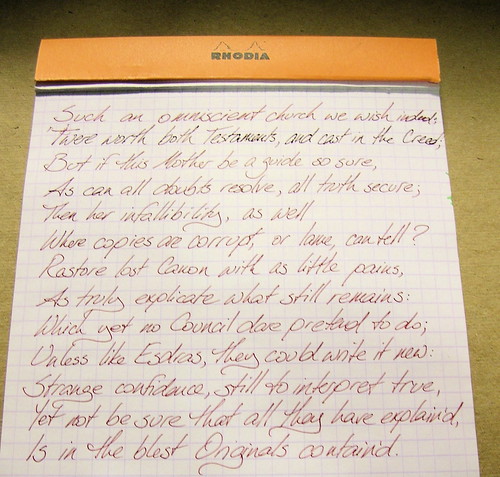Such A Fine Line
Yesterday, I received from my father-in-law (Hi, Pa Moose!) an annotated catalogue of religious goodies for children. Knowing of my fondness for holy cards and my pedagogical use of cards and games for teaching seminarians, he identified some commercially-produced alternatives to my home-brewed products — then went on to point out the many other, ummm, impressive wares available from Catholic Child.
For instance, Dick points out the collection of Saints Dolls: the puffy (and less expensive) assortment of saints (and the Sacred Heart of Jesus) at $17 each, and the more detailed dolls at $98 each. Sorry, Mary is sold out till March. If your saints dolls seem aimless and disoriented — like sheep without a shepherd — pick up a My Loving Jesus Doll, with a fleecy blue undergarment.
Perhaps Margaret’s students would understand the most recent papal encyclical better if they read it in tandem with Joseph and Chico: The Life of Pope Benedict XVI as Told By a Cat. Better yet, these merchants could contrive a follow-up volume, Spe Salvi as Told By a Cat.
Alas, the holy cards that they sell are the dreadfully cloying pastel-modern sort, but Catholic Child did pick up on my idea and tried to make sets of informative Saints Trading Cards. If I had their budget and marketing muscle, though, I could do much better for them on both counts.
“This catalog has something for everyone,” according to Dick. Truly, he is right — though I feel a little sad for the people who get the Guardian Angel pillowcase rather than one of the cooler presents (who’s asking for the Easter Scene Action Figures starter set? Plus, those of you untouched by the Postmodern Depression can order add-on sets of Marys, Thieves, and Soldiers. Woohoo! It’s an anti-Creche!).
Catholic theology has not, thankfully, succumbed to the iconoclastic tendencies of some streams of Protestantism; and it will always be easy to take cheap shots at other people’s piety. Catholic Child catalogue is absolutely on the side of the angels, and some of their merchandise might be both tasteful and edifying (they sell one of Tomie de Paola’s books, for instance — oops, perhaps they used to, I don’t see it in their online catalogue). And tastes differ, and children can benefit immensely from improbable sources. All true. Still, a church-related press could go a long, long way toward building up the faith by deliberately offering a repertoire that draws on deeper theological wisdom, finer liturgical art, and richer insight into child development and teaching. In the meantime, anyone up for a game of Divinity?

